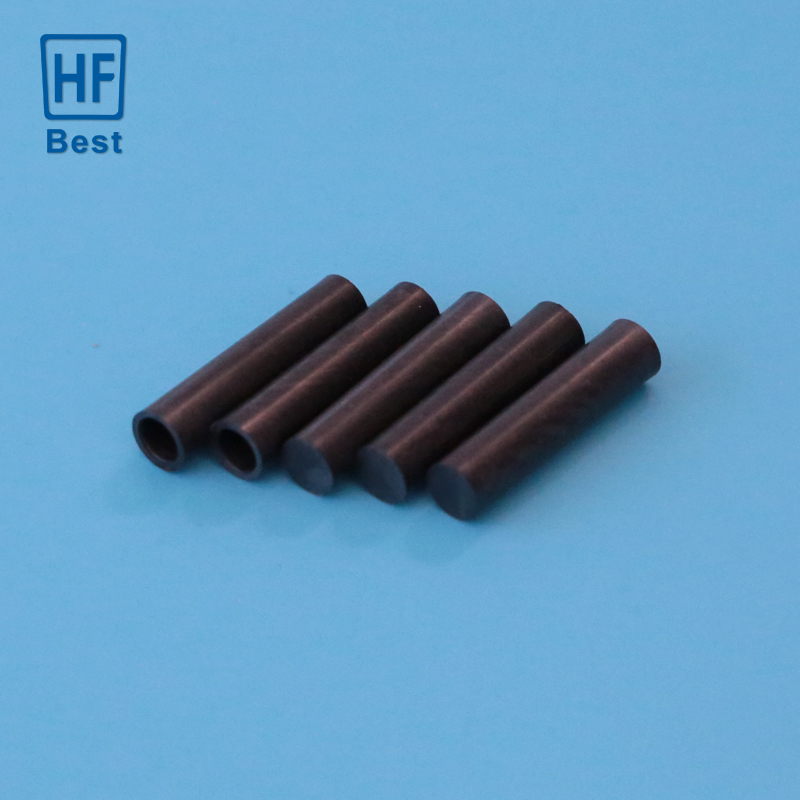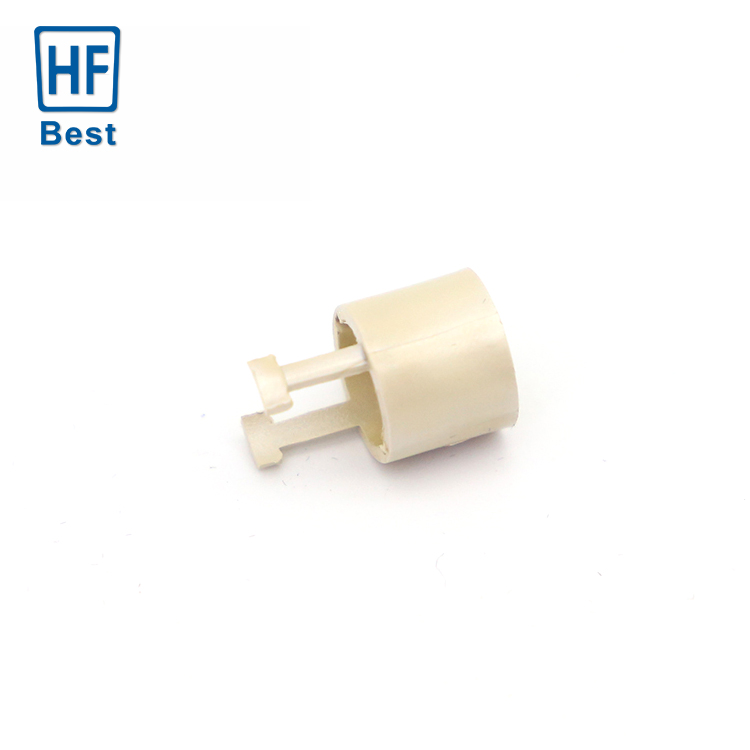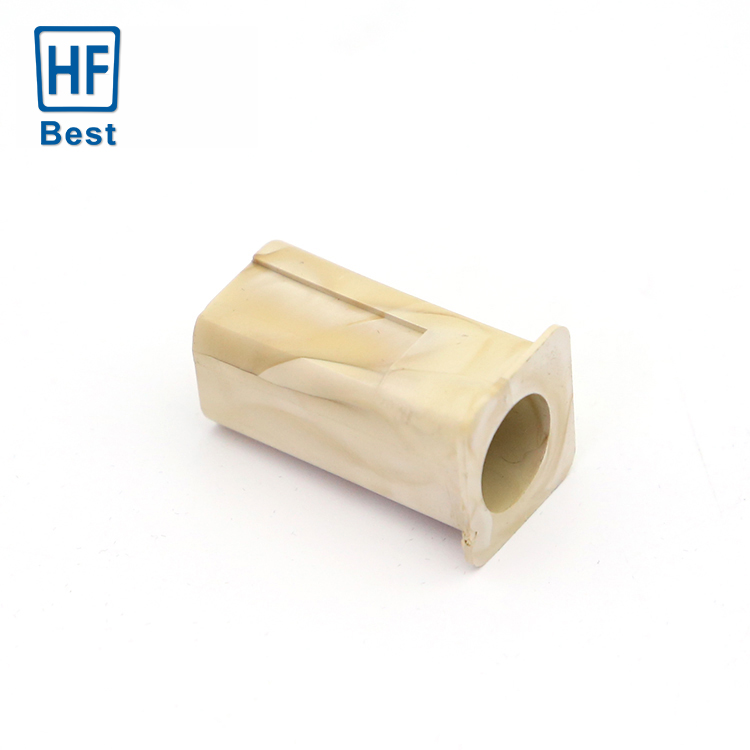News
- Industry news
Industry news
Plastic products science - LCP processing
LCP processing method
1. Injection molding
Injection molding is the most important molding method for LCP plastics.
LCP plastic not only has excellent processing flow, but also has a fast curing speed, which is suitable for processing by injection molding. Compared with polyphenylene sulfide (PPS) and high temperature resistant nylon (HT-PA), the product has the advantages of no flash edges.
2, extrusion molding
Extrusion molding is often used to produce plastic films and pipes. At present, LCP is generally formed into multi-layer films or pipes by co-extrusion with other isotropic materials, such as PET and ethylene-vinyl alcohol copolymer (EVOH)
3, solution casting molding
LCP has low thermal expansion coefficient, excellent dimensional stability, low moisture absorption, excellent high frequency characteristics and electrical insulation properties, so it can be widely used in high frequency circuit board. Among them, flexible printed boards and embedded circuit boards require flexible layout and high-density wiring, so the molding process requirements are very high. Traditional injection molding, extrusion and other methods are difficult to meet the process requirements.
4. Blow molding
LCP plastic has excellent gas permeability and solvent resistance, and can be blown into hollow molding products or thin film products with excellent barrier properties.

LCP mold process focus
1, the mold design of LCP products is very critical, the mold inlet should be an ordinary open mouth, rather than a hot mouth, if the hot mouth products are easy to bubble, that is, the temperature is too high to lead to product fire.
2, the general mold temperature is about 140 ° C, the upper (front) mold temperature should be higher than the lower (back) mold, because the upper (front) mold temperature high melt glue fluidity is not easy to cause cold glue, the lower (back) mold temperature is low products are easy to crystallize, the upper (front) lower (back) mold temperature difference does not exceed 15 ° C.
3, in the mold temperature selection, in order to shorten the molding cycle, prevent the tip, should choose a lower mold temperature; If the dimensional stability of the product is required to reduce the problem of joint generation and insufficient filling, a higher die temperature should be selected.

LCP product mold design
Since LCP is anisotropic, the physical properties of LCP products are governed by their own and the orientation of the filling material, and this orientation is determined by the shear stress of the material melt when flowing. Therefore, in the mold design, the flow state of the material in the cavity must be comprehensively considered in combination with the specific performance required by the product. In general, the thinner the thickness of LCP products, the more significant their orientation; The joint part of the LCP product has a great impact on its strength, so in the mold design, it should be avoided as much as possible.
1. Flow path
The flow channel is divided into semi-circular, trapezoidal and circular according to the degree of processing difficulty, and from the Angle of cross-sectional area and pressure loss from good to bad, it is successively circular, trapezoidal and semi-circular, so it is recommended to use circular or trapezoidal flow channel. For the flow diameter design of LCP mold, it is necessary to consider many factors such as the length of the flow path, the size of the plastic parts and the economy, but the flow path diameter can usually be designed to be 2~5mm. In addition, the length of the flow channel should be as short as possible in principle, among which for the multi-cavity mold, in order to reduce the difference between the mold cavity, it is best to keep the distance to each mold cavity equal. If the size of the main stream is much larger than the nozzle aperture of the injection machine, the main stream is prone to jet marks, and may also involve air, resulting in bubbles in the product. Therefore, it is best to design the minimum diameter of the main channel to be about 0.5mm larger than the nozzle aperture, and set the slope to 0.5~1°. LCP not only has good demoulding property, but also has good fluidity. If there are scratches on the surface of the mold, it will affect the release of the product. Therefore, it is necessary to grind and polish the direct gate and the runner, and set the cold hole structure at the end of the direct gate and the runner.
2. Gate
In the mold design of LCP, gate design is particularly important. Since the LCP is anisotropic, the gate form and gate location must be determined based on consideration of the filling method. In addition, in order to give full play to the excellent characteristics of LCP, the gate should be set in the melt flow direction in principle. If the shape of the product is complex, it is easy to produce turbulence in the direction of melt flow. At this time, the effect of gate position on LCP molecule arrangement can be ignored, and the method of adjusting speed and pressure can only be taken to remedy it. In LCP mold design, side gate, point gate and latent gate can be generally used.
3, exhaust tank
LCP can produce trace gas when it is formed. In order to better fill the cavity, it is necessary to set the exhaust groove. Exhaust groove (length 100~200 mm) depth of 1~2mm is appropriate, if lower than this depth, exhaust groove cross-sectional area will be smaller, so as to reach the lower limit of gas flow, may cause poor exhaust. Therefore, any place where the gas is easily trapped should be set up exhaust grooves.

Problems to pay attention to when processing LCP
1. Barrel temperature
Usually the barrel temperature, nozzle temperature and material melting temperature are shown in the table. If considering the service life of the screw, the temperature difference between the back, middle and front can be reduced. In order to prevent the nozzle from salivating, the nozzle temperature can be 10 ° C lower than the temperature shown in the table, if you want to improve the fluidity, the set temperature can be 20 ° C higher than the temperature shown in the table, but the following conditions must be noted.
When reducing the temperature of the cylinder: the retention time is too long, it will not cause the aging of the particles in the cylinder, and it will not produce corrosive gases, so the long retention time generally will not cause any big problems. However, if the molding is interrupted for a long time, please reduce the cylinder temperature and throw away several molds when forming again.
2. Mold temperature
LCP plastic raw materials can be formed in the mold temperature between 30℃-150℃. But we generally set the mold temperature at about 70℃-110℃. In order to shorten the molding cycle and prevent flash and deformation, low mold temperature should be selected; If the product size is required to be stable (especially for products under high temperature conditions), reduce the generation of fusion joints and solve problems such as insufficient filling, a high mold temperature should be selected.
3. Plasticized
The speed of the screw is generally 100rpm. If it is a material containing glass fiber or carbon glass fiber, in order to prevent the glass fiber from being broken, we must choose a relatively low speed. Also, keep your back pressure as low as possible. When the barrel temperature is set at 300℃, the retention time of the material in the barrel has an effect on the mechanical properties and color of the plastic.
4. Injection pressure and injection speed
The most appropriate injection pressure must depend on the material, the shape of the product, the mold design (especially the gate, runner, gate) and other forming conditions. However, the melt viscosity of LCP without any grade is very low, so the injection pressure is lower than that of general thermoplastic resins. Forming at the beginning of the use of low pressure, and then slowly increase the pressure, this is a better method. Most of the molded products can be molded under the injection pressure of 15MPa-45MPa. In addition, the curing time of LCP is relatively fast, so the injection speed is easy to get good results.
5. Molding cycle
The molding cycle depends on the size, shape, thickness, mold structure and molding conditions of the molded product. As mentioned above, LCP has good fluidity, so its filling time is relatively short, and the curing speed is also relatively fast, so we can get a shorter molding cycle. The typical molding cycle is 10-30 seconds.






